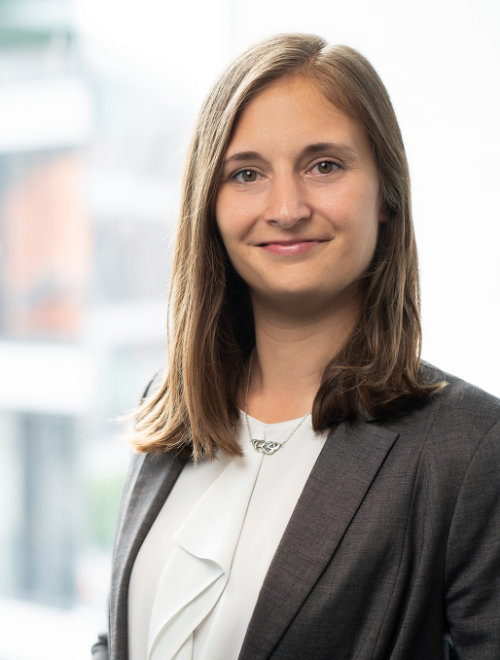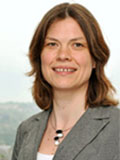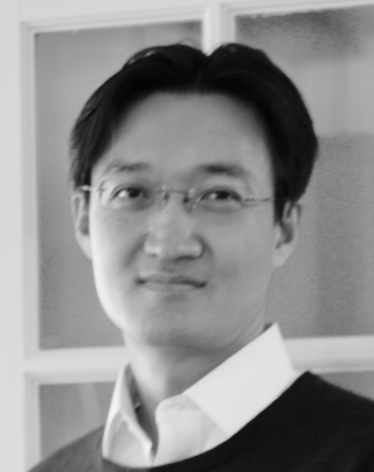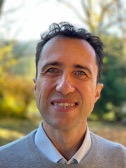PROGRAM
Program Overview
Proceedings
The proceedings shall be published shortly after the conference in IFAC-PapersOnLine
Plenary lectures
LHMNC24 features the following plenary speakers :
- Silke Glas (University of Twente, The Netherlands)
- Birgit Jacob (University of Wuppertal, Germany)
- Taeyoung Lee (Mechanical and Aerospace Engineering,The George Washington University, USA)
- Cristian Secchi (University Modena, Italy)
More details about the dates and contents of the plenary lectures are provided below.

Silke GLAS
Title : Model Reduction on Manifolds: from a differential geometric formulation to data-driven realizations
Session : TBA
University of Twente, Twente, The Netherlands
Bio : Silke Glas is an assistant professor at the Department of Applied Mathematics at the University of Twente. Her research focus is on the development and numerical analysis of structure-preserving model reduction methods for partial differential equations and (port-)Hamiltonian systems.
Abstract :
Capturing and preserving physical properties, e.g., system energy, stability and passivity, using data-driven methods is currently a highly-researched topic in surrogate modeling. To ensure that the desired physical properties are retained, structure-preserving projection techniques are used in the field of model order reduction (MOR).
In this talk, we present structure-preserving MOR with nonlinear projections, which are needed for problems with slowly decaying Kolmogorov n-widths.
To precisely define and highlight the quantities that we would like to retain, we start with a formulation of initial value problems on manifolds, which we consider as the full-order model (FOM). Already at this level, we define what we mean by adding structure to the FOM and how this can be detailed geometrically. This formalism allows to introduce a novel projection technique, the generalized manifold Galerkin (GMG).
By adapting the underlying non-degenerate tensor field, this GMG projection can be used for a structure-preserving reduction of various initial value problems that give rise to interesting physical properties, which include, but are not restricted to, Lagrangian and Hamiltonian systems.
Once that we have derived the geometric formulation, we focus on data-driven ansatzes to realize the presented reduction methods. In this part of the talk, we will connect several existing techniques for data-driven realizations with GMG projections.

Birgit JACOB
Title : TBA
Session : TBA
University of Wuppertal, Wuppertal, Germany
Bio : Prof. Birgit Jacob received the M.Sc. degree in mathematics from the University of Dortmund, Germany, in 1992 and the Ph.D. degree in mathematics from the University of Bremen, Germany, in 1995. She held postdoctoral and Professor positions at the University of Twente, University of Leeds, University of Paderborn, Berlin University of Technology, and at the Delft University of Technology. Since 2010, she has been with the University of Wuppertal, Germany, where she is a Full Professor in analysis. From 2012-2016, she has been the Vice Dean of the Faculty of Mathematics and Natural Sciences. Her current research interests include the area of infinite-dimensional systems and operator theory, particularly well-posed linear systems and port-Hamiltonian systems.
Abstract : TBA

Taeyoung LEE
Title : TBA
Session : TBA
Professor at Mechanical and Aerospace Engineering,The George Washington University, USation (City University)
Bio : Dr. Taeyoung Lee is Professor at the Department of Mechanical and Aerospace Engineering at the George Washington University, Washington DC. He received his doctoral degree in Aerospace Engineering, and his master’s degree in Mathematics at the University of Michigan in 2008. His research interests include geometric mechanics, geometric control, optimization, estimation, and uncertainty propagation with applications to aerospace systems and robotics. He is an author of a research monograph, entitled Global Formulations of Lagrangian and Hamiltonian Dynamics on Manifolds. He is a lead principal investigator of a DoD Multidisciplinary University Research Initiative award, and he is currently serving as an associate editor of IEEE Transactions on Control Systems Technology and IEEE Transactions on Aerospace and Electronic Systems..
Abstract : TBA.

Cristian SECCHI
Title : Energy based control for human robot interaction
Session : TBA
University of Modena, Italy
Bio : Cristian Secchi is a Full Professor of Robotics at the University of Modena and Reggio Emilia. He received his M.Sc. in Computer Engineering from the University of Bologna in 2000 and his Ph.D in Information Engineering from the University of Modena and Reggio Emilia in 2004. In 2006 his thesis on interactive robotic interfaces has been selected as one of the three finalists for the Georges Giralt PhD Award for the best PhD thesis on robotics in Europe. He has served as an Associate Editor of the Robotics and Automation Magazine (2005-2008), for the IEEE Transactions on Robotics (2012-2017) and for the IEEE Robotics and Automation Letters (2015-2017) and for the International Journal or Robotics (2023-). He served in the editorial boards of the major robotics conferences, and he is the program chair of the 2024 European Robotics Forum, the most influential meeting of the robotics community in Europe. He coordinated and participated to several national and European projects and to several research activities funded by industries. The research project CROW (Coordination of AGVs in Automatic Warehouses) project has been selected as a finalist for the 2010 EUROP/EURON Technology Transfer Award for the best Technology transfer project in Europe. He is currently PI of SIMOD, where a novel multi-robot manipulation strategy for deformable objects will be developed.He is the Director of the ARSControl lab, the Automation, Robotics and Systems Control laboratory of the University of Modena and Reggio Emilia. His main research interests are in the fields of human-robot collaboration, multi-robot systems and medical robotics. In particular he is interested in energy based methods for achieving a smooth safe and stable interaction between humans and robots in different application areas. He is author of more than 300 scientific articles published on conference proceedings and on international journals, including one book and two patents.
Abstract :Operating in a dynamic and unstructured environment is one of the maim challenges of today’s robotics. Robots have to physically interact with entities with unknown dynamics, among which the human is the most challenging. In this scenario, the interactive behavior of the robot has to be reliable, dynamic and safe. In this talk, I will show how, using energy based arguments, it is possible to build a flexible yet provably reliable and safe control strategy for human robot interaction.
Instructions for speakers
Social Program
Welcome reception: Sunday 09 June 18:00
Location: Centre Diocésain Garamont
Conference Dinner: Tuesday 11 June 18:0
Chapelle de la Citadelle de Besançon
Farewell: Wednesday 12 June 16:00
Location: Centre Diocésain Garamont
